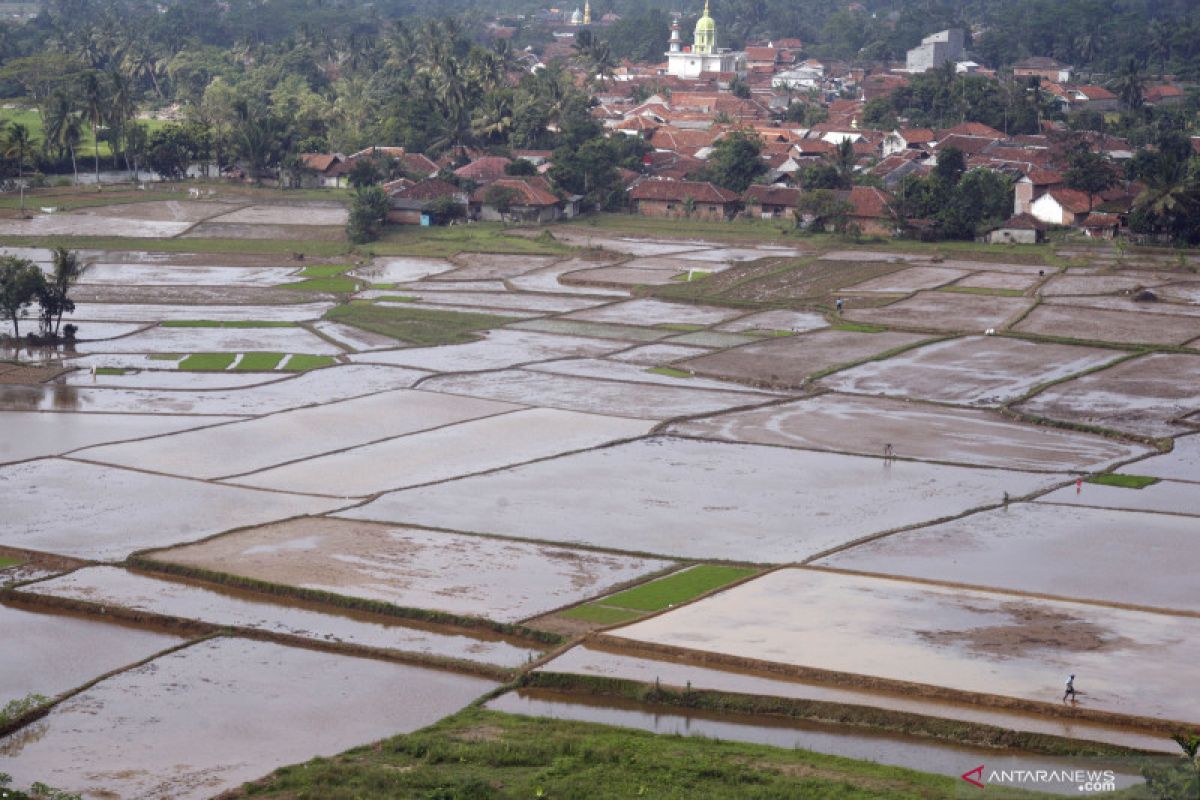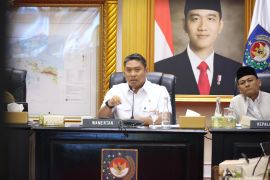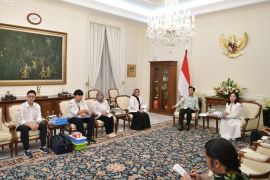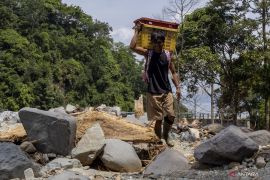NSLIC/NSELRED is a project funded by the Government of Canada, through Global Affairs Canada (GAC). Its key partners are the Ministry of National Development Planning (Bappenas) and Cowater International Inc. that were selected as the project implementers through a competitive process.
In a statement in Jakarta on Monday (July 27), a public consultation on land use change and beef stock was held on July 22-27, 2020, involving representatives from relevant ministries, including the Ministry of Home Affairs, Ministry of National Planning, Ministry of Agrarian and Spatial Planning, Ministry of Agriculture, and Ministry of Environment and Forestry.
"This series of public consultations aims to get inputs on the impact of agricultural land conversion policies and regulations," Project Director NSLIC Indonesia Cavelle Dove noted.
Dove expounded that the public consultation also aimed at reaching an agreement on the necessary strategic steps and joint policies or regulations to be taken to reduce the conversion of agricultural land, with the final result being to strengthen food security in Indonesia and increase the local cattle population to meet national demand.
Dove noted that the regulatory issues in starting a business and licensing significantly impacted development, progress, and sustainability of the regional economy, including the Regional Economic Development (PEL) pilot initiated by NSLIC/NSELRED.
Dove suggested increasing the number of regulations at the local and national levels since national regulations and policies function as a legal umbrella for local regulations.
The NSLIC/NSELRED project supports the National Strategy for Regulatory Reform in Indonesia as part of the goal to streamline regulations that hinder the investment climate and economic development.
In accordance with Presidential Instruction No. 7 of 2017, point 7, on the preparation, implementation, and supervision of policies and regulations, the Head of the Institution/Ministry is mandated to conduct an analysis of the impact of the policy, including a risk analysis and public consultation, before the establishment of regulations or policies.
NSLIC/NSELRED offers expertise in policy impact analysis and public consultation on regulations selected using the Regulatory Impact Assessment (RIA) instrument.
"The use of instruments to analyze regulations, including public consultations, aims to reduce conflicts of interest that may arise during the preparation or improvement of regulations," Dove stated.
Furthermore, the NSLIC/NSELRED examines instruments for mainstreaming gender sensitivity and environmental sustainability, as two key cross-cutting aspects in regulatory analysis.
The Ministry of Agriculture was selected as the RIA assistance pilot since most of the NSLIC/NSELRED pilot commodities in 28 districts and cities are in the agricultural sector, and this provides another example of how the NSLIC/NSELRED can link performance at the village-level and national-level regulations. Related news: C. Java self-sufficient in beef with growing livestock population
Related news: Conversion of land function reduces farmers` welfare
Related news: Agricultural land conversion in Bali alarming
Translator: Citro Atmoko, Azis K
Editor: Rahmad Nasution
Copyright © ANTARA 2020











